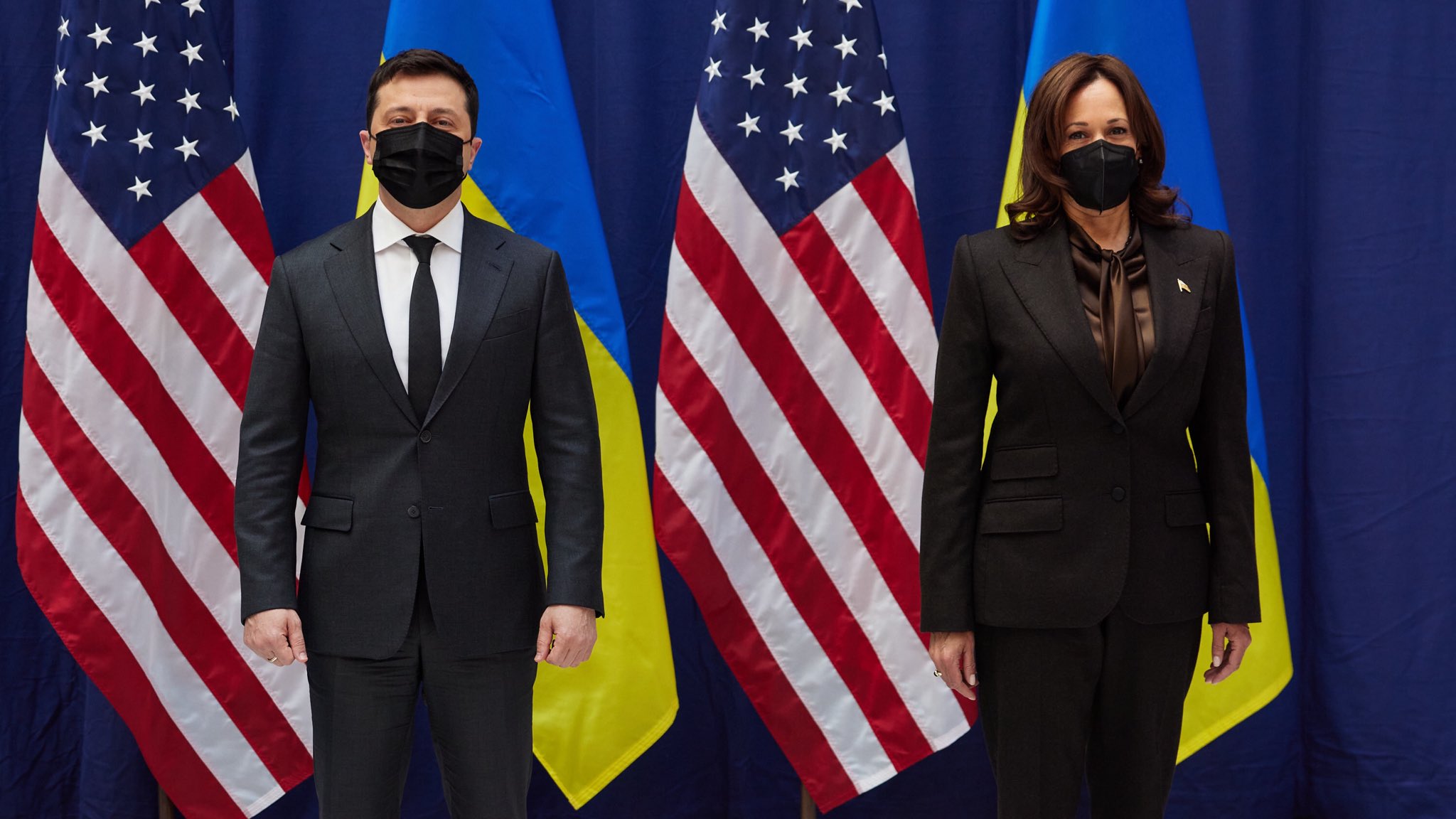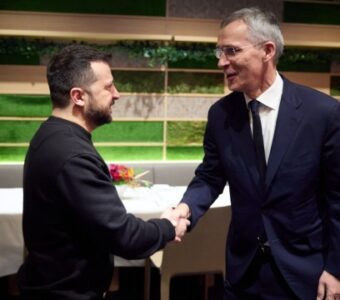Why is Zelenskyy's first meeting with US Vice President Kamala Harris important?

Twitter/ZelenskyyUa
The Munich Security Conference, a traditional gathering of the top current and former world politicians, was de facto dedicated to Ukraine this year, as each politician didn't overlook the possible escalation by Russia. Despite the tense situation, President Zelenskyy also found an opportunity to attend the event, and also met with several influential world leaders. In particular, he managed to meet for the first time with US Vice President Kamala Harris.
What is the problem?
Zelenskyy criticized Biden for his unwillingness to impose sanctions to prevent aggression
The President of Ukraine has repeatedly stated that his appeals to Western leaders to impose sanctions on Russia, Putin, and his entourage to prevent an invasion, have often gone unanswered. On the sidelines of the Munich Security Conference, Volodymyr Zelenskyy unequivocally confirmed that there was a misunderstanding with the American president. It concerns the timing and conditions of sanctions against Putin personally and Russia. The United States is of the opinion that sanctions should not be imposed in advance because, in the event of full-scale aggression, there will be nothing to deter Moscow with. Instead, Kyiv insists that in the event of persistent rhetoric about confidence in the start of the war, restrictive measures should be put in place to avoid such a scenario. Instead, the United States continues to release intelligence on the date of the invasion, and Biden admitted for the first time that it is likely that a decision has already been made and it will be the worst-case scenario.
Amid this, the Munich Conference had a chance to become a diplomatic platform for the exchange of views connected to recent days. That's exactly what happened, so Zelenskyy's visit to this event can even be considered a necessity. Unexpectedly, the US delegation was not led by Secretary of State Antony Blinken, but by Vice President Kamala Harris.
Why Kamala Harris?
Until now, Kamala Harris hasn't been de facto involved in foreign policy at all, and in 13 months in office, she has made only two trips abroad to Europe. The first visit can even be called forced, because then she went to Paris after Washington didn't quite treat NATO allies well, given the refusal of cooperation to build nuclear submarines. Instead, an alliance with Australia was announced by AUKUS. In fact, Harris was actually sent to put out the fire after a failed communication between Paris and Washington. This time, of course, it didn't happen, but the tension in relations between Kyiv and Washington was felt even in public.
For Harris, this meeting is very important in terms of positioning herself not only as a tough political figure (because she gained this reputation as a senator) but also a member of the Biden administration, which doesn't stand aside from external problems. There have been few such vice presidents in the United States in the last 80 years. Biden himself was one of them in the Obama administration.
Therefore, this decision is strategic, so Biden's team wants to expand the first woman vice president's powers and share the burden of responsibility for the crisis inspired by Russia on the border with Ukraine in the form of falling ratings.
In addition, it's possible that if Biden's ratings continue to fall so rapidly, or his mental and physical health doesn't allow him to run in the next election in 2.5 years, Kamala Harris may become a Democrat candidate for White House. Therefore, from a long-term perspective, maintaining personal ties with her is important.
What is the solution?
Continue to thank partners, including the United States, for their assistance and to confirm that Ukraine is a reliable partner
The United States, like all countries that assist Ukraine, must understand that this assistance is needed and that at least the rhetoric of top officials will not be aimed at criticizing the actions of the same partners. These differences in threats and responses (namely, whether to impose preventive sanctions or do so ex post facto) may not prevent support at such a critical time but may have more negative consequences in the long run.
At the same time, the Biden administration is not a homogeneous institution, so it's important to closely monitor the situation and monitor signals of conflicts within the 46th president's team. There have been similar signals, but neither Biden nor Harris have publicly demonstrated this. If, for example, Harris resigns in early 2023 and runs for president instead of Biden, the conflict is likely to take place. Otherwise, if Biden still seeks to run on his own, there will be a chance that Harris will remain vice president.
Moreover, the meeting between Zelenskyy and Harris in Munich now allows Ukraine to build relations with the United States a little differently than before. If Kamala Harris has become more concerned with Ukraine, it means that she could potentially be invited to the Crimean Platform summits and be offered bilateral working visits to Kyiv to strengthen cooperation between Ukraine and America. Consequently, there are more opportunities for bilateral cooperation. And this perspective adds optimism amid not very positive news.
























































